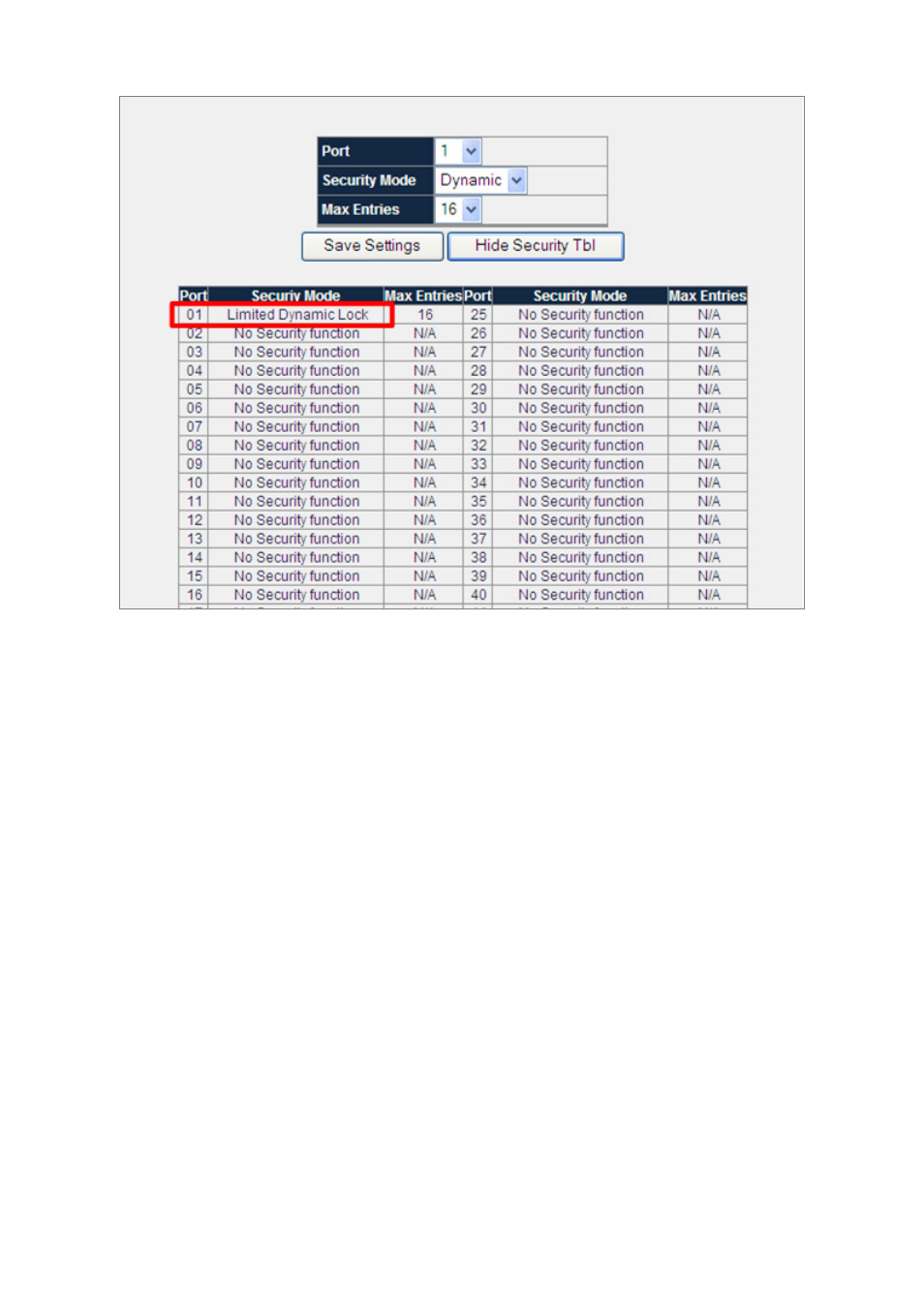2 acl – PLANET WGSW-48000 User Manual
Page 88

User’s Manual of WGSW-48000
88
Figure 4-7-2 Port Security – current security table
4.7.2 ACL
An ACL consists of a set of rules which are matched sequentially against a packet. When a packet meets the match criteria of a
rule, the specified rule action (Permit / Deny) is taken and the additional rules are not checked for a match. On this menu the
interfaces to which an ACL applies must be specified, as well as whether it applies to inbound or outbound traffic. Rules for the
ACL are specified/created using the ACL Rule Configuration menu.
ACL is an acronym for Access Control List. It is the list table of ACEs, containing access control entries that specify individual
users or groups permitted or denied to specific traffic objects, such as a process or a program.
Each accessible traffic object contains an identifier to its ACL. The privileges determine whether there are specific traffic object
access rights.
ACL implementations can be quite complex, for example, when the ACEs are prioritized for the various situation. In networking,
the ACL refers to a list of service ports or network services that are available on a host or server, each with a list of hosts or
servers permitted or denied to use the service. ACL can generally be configured to control inbound traffic, and in this context,
they are similar to firewalls.
ACE is an acronym for Access Control Entry. It describes access permission associated with a particular ACE ID.
There are three ACE frame types (Ethernet Type, ARP, and IPv4) and two ACE actions (permit and deny). The ACE also